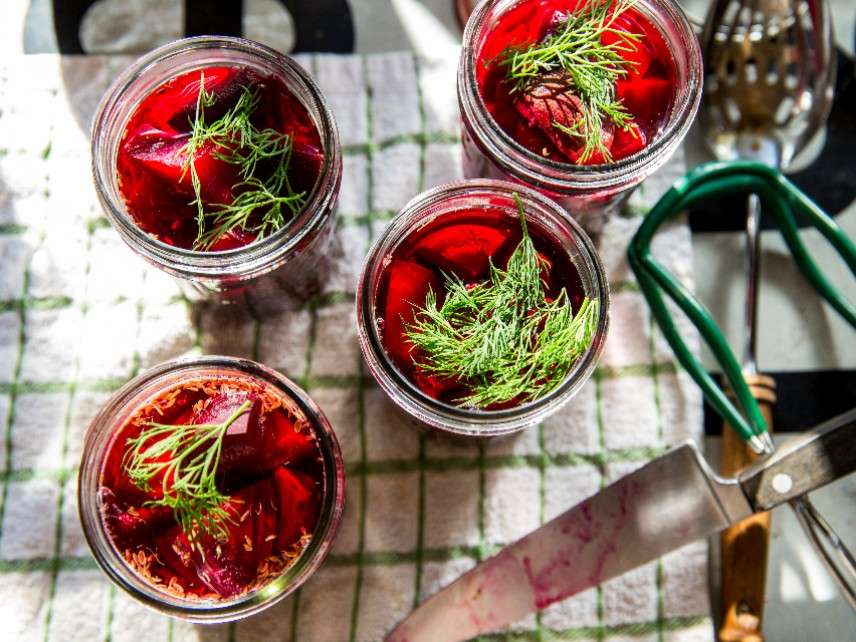North Dakota Regulators Are Going After the State's Food Freedom Law—Again
The state health department can't stop meddling with cottage bakers

Reports surfaced this week North Dakota's great Food Freedom Act, which became law last year, could be watered down by overbearing state regulators. Adding to the concern, a Bismarck paper recently endorsed the basic outline of such rules.
North Dakota's food freedom law allows direct sales of many foods by a producer in the state to consumers in the state. That includes direct sales of virtually any foods—from apple slices to homemade pickles to homemade zucchini bread—except meat or raw dairy products.
North Dakota's law is the nation's third bi-partisan food freedom law—after Wyoming's and Colorado's—as I detailed in a column last year. Maine's food sovereignty law contains many of the same elements, but differs because it allows local municipalities to opt into the law.
The North Dakota's law has many success stories, such as this one, but it continues to face threats made by the state's overbearing health department and other opponents.
Just this past February, the state health department proposed rules that supporters of the law argued "would block much of what they hoped to accomplish" by passing the law in the first place.
AgWeek reports that the proposed rules would have "prohibit[ed] sales of dehydrated items without checks on water levels, refrigerated goods that aren't kept frozen before selling, and home canned goods that don't use approved recipes or include nonacidic canned foods, such as green beans. The rules also laid out requirements for labeling."
Then, in March, the Institute for Justice (IJ) sent a letter to North Dakota lawmakers, regulators, and Food Freedom Act supporters stating that the rules the agency had proposed to adopt went against the letter and spirit of the law.
The law is clear that regulations of the sort proposed by the health department are not permissible. The law states that "any cottage food product or food sold under this section is not certified, labeled, licensed, packaged, regulated, or inspected." It also orders that "a state agency or political subdivision may not require licensure, permitting, certification, inspection, packaging, or labeling that pertains to the preparation or sale of cottage food products under this section." This language, along with the law's requirement that producers inform consumers that the foods they sell are "not licensed, regulated, or inspected," makes it clear the state legislature intended that foods sold under the Food Freedom Act not be subject to regulations.
In the wake of IJ's letter, which the state took as an intent by IJ to sue should the health department should it adopt the rules, state lawmakers met with the health department, which agreed to scrap its plans.
That was good news. But after taking one step back, the health department now appears emboldened to take two lousy steps forward. Their angle of attack is language in the law pertaining to "baked goods, jams, jellies, and other food and drink products produced by a cottage food operator." The health department may attempt to define—and, hence, limit—the meaning of "other food and drink products."
The state's second-largest paper, the Bismarck Tribune, recently came out in support of adopting rules because "it's possible problems could arise with cottage foods."
Earlier this week, I spoke with LeAnn Harner, who owns Harner Farm in Mandan, North Dakota, and is a key supporter of the state's food freedom law.
"There is no part of this section of North Dakota state law that allows the health department to draft rules," Harner tells me. "They want to eliminate any refrigerated foods, any cut vegetables—tossed salad, baked beans, potato salad, or any of those kinds of foods."
Pete Kennedy, an attorney with the Weston A. Price Foundation, sees things similarly.
"Issuing regulations would likely keep some quality cottage food producers out of the market because of the cost of compliance in an area where there have been no food safety problems," Kennedy tells me.
One key opponent of the law is the North Dakota Grocers Association, which said in a May newsletter that the group "apposed (sic) this bill and will work with the ND Department of Health to fix or repeal this legislation." Competition is a beast.
As I noted in my column on the North Dakota law last year, food freedom laws have been successful and continue to spread because they expand choices for farmers, home-based entrepreneurs, and consumers; haven't led to negative food-safety outcomes; and enjoy bipartisan support.
But their opponents—namely state health departments and competing food sellers, such as the North Dakota grocers—continue to fight these laws. That's because these laws are a boon wherever they've been passed. They're intended to eliminate red tape, not to create new barriers. We need more such laws and not mindless restrictions that water down the considerable benefits of food freedom legislation.


Show Comments (58)